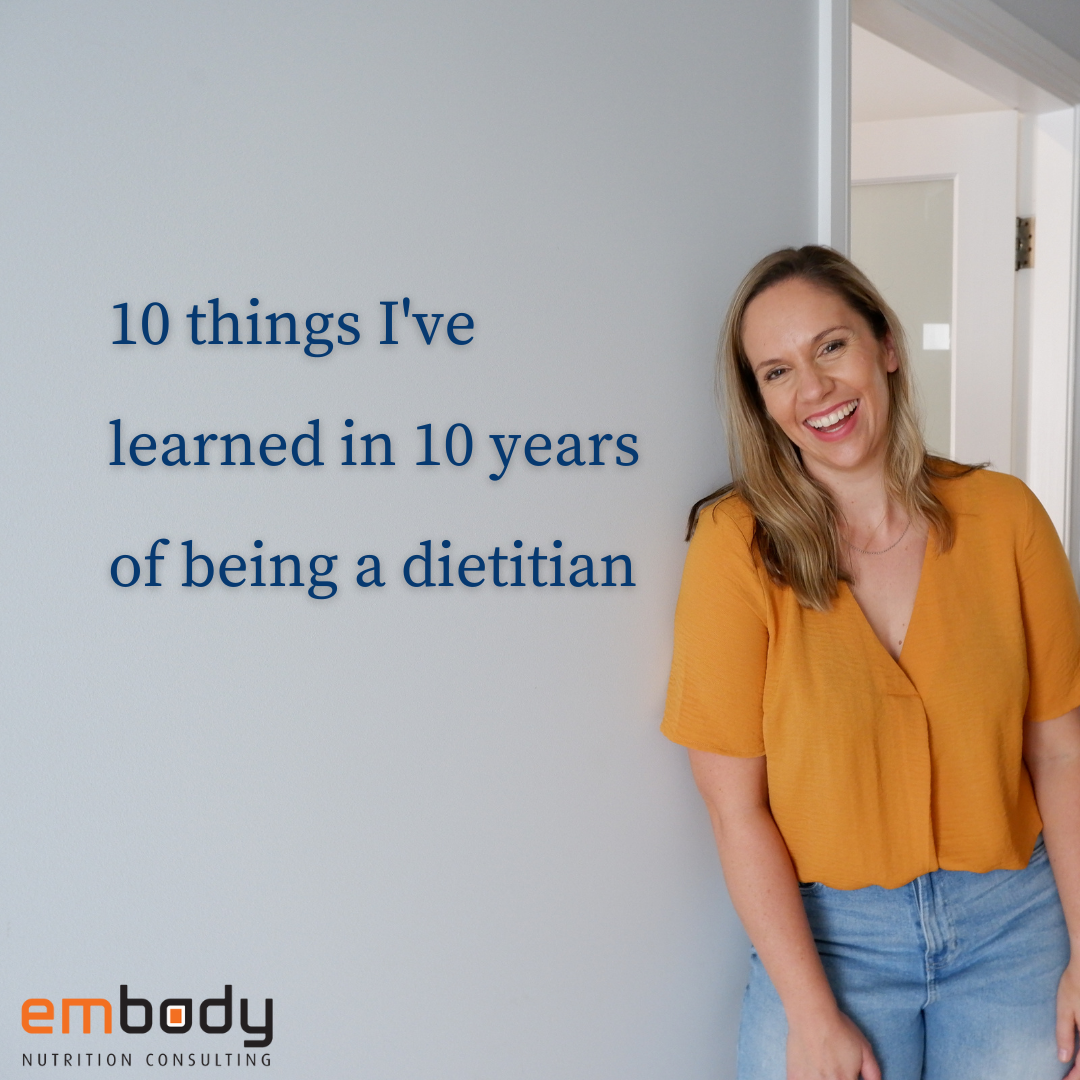It’s not often than I will sit down to write an article that is all about me, but I feel like after a decade in this business I have a few useful insights that I would love to share.
Working with a dietitian is often not what people think it is going to be. We’re not out here dishing out meal plans and forbidding people to eat chocolate for the rest of their life (we love chocolate BTW).
It is my firm belief that my job is one of support, guidance and helping you to understand how to best fuel your body in a way that feels good for you and aligns with your goals. And guess what? The way I do that is different for almost every person I see.
Even within my work in team sport, the scope of the advice and plans I give out varies significantly from one athlete to the next, even within the same team!
So here we go – my top 10 learnings from the last 10 years…
- My job is 50% dietitian and 50% therapist. I’m not joking! (but I’m also not really a therapist so shout out to all the actual therapists who are literally amazing). Counselling however is a huge part of what I do because food is very personal and quite emotional for many people. We often need to tap into that before we can make real progress.
- Your diet does not have to be perfect… in fact, I would prefer it not to be. What your diet needs to be is sustainable, and perfection and sustainable don’t often go hand in hand. You can read more on perfection here.
- Most people don’t care how much scientific knowledge I have or how many fancy terms I know… people care if I can help them. Being able to make complex things sound simple is actually much harder than it seems and it a skill that I believe many dietitians do beautifully.
- If clients are not successful in achieving the goals we set, it is as much on me as it is on them. My job is to make it as easy as possible for you to reach your goals. As well as this, sometimes it is your job (as the client) to take the pressure off yourself and set smaller, more achievable goals in order to reach your big overarching goal. Change can be hard and recognising this can be liberating.
- The road to reaching your goals is NEVER straight forward or predictable (wouldn’t that be nice though!).
- Changing habits and behaviours around food is key to making lasting changes to your diet. This takes so much practice and patience. The way we eat is established over many years and unlearning many of these learned behaviours won’t happen overnight.
- Food is so many things… it is fuel and it is nutrients yes. But it also celebration and culture and connection and memories. Food is not just about nutrition; it is also about enjoyment.
- Restriction of the foods you love will often lead to you wanting those foods even more. It can sometimes lead to developing a poor relationship with food which can complicate the way you think and feel about food and therefore your ability to make progress towards your goals (whatever they may be). Learning to incorporate your favourite foods in a way that works for you can be key to living a balanced, healthy, and enjoyable life.
- Nutrition is often not the number one priority in people’s lives and that’s OK! People have families, careers, social lives etc all of which are important. There will be times where you can focus more intently on your nutrition and others that it will take a back seat. As long as it sits somewhere on the spectrum of ‘important things’ (because your health is definitely important) then you’ll be just fine.
- I have the best job in the world. The end.

